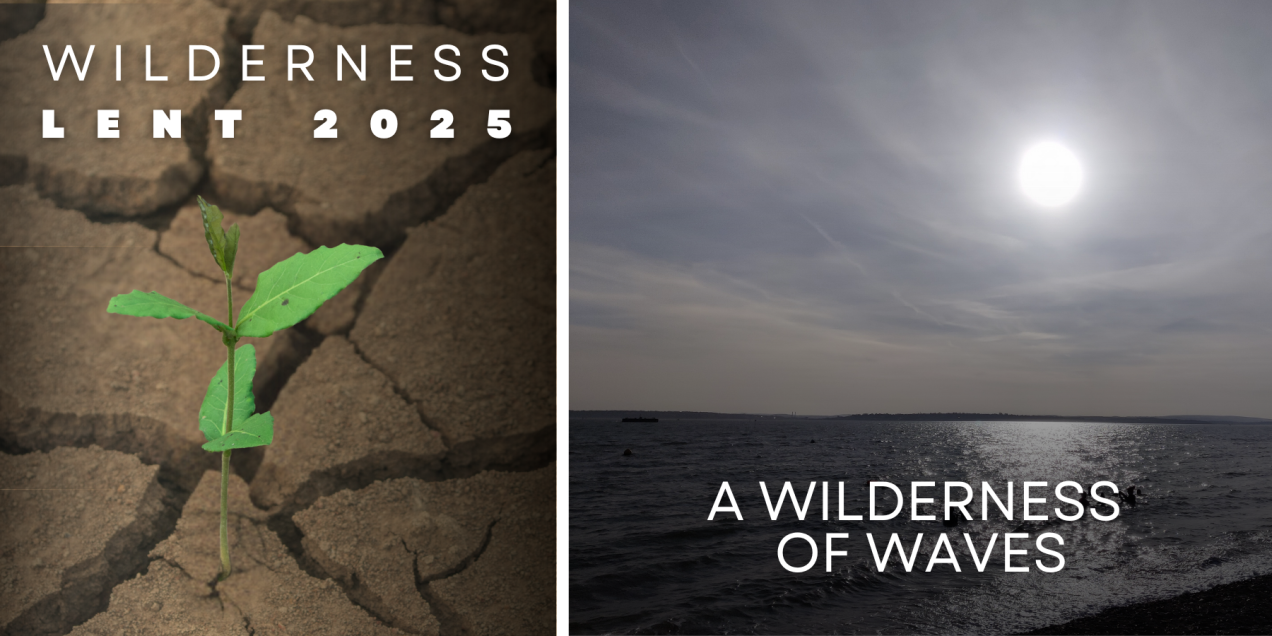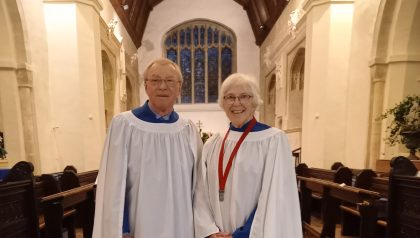
Today’s Lenten reflection was written by Revd Canon Angi Nutt, Diocesan Director of Ordinands (DDO).
The sea is a wilderness of waves,
A desert of water.
We dip and dive,
Rise and roll,
Hide and are hidden
On the sea.
Day, night,
Night, day,
The sea is a desert of waves,
A wilderness of water.
Langston Hughes
I grew up with two sets of seaside grandparents and I am a year-round sea swimmer. I have always been enamoured of the sea.
My childhood seas could not have been more different – the wild West coast of Scotland, and the golden beaches of Poole and Bournemouth, but they both taught me about the sea as a wilderness, as much as any desert; a place where human control slips away. A place to meet God on the edge, between earth and sky.
In Genesis we see the sea covering the entirety of the surface of the newly created world “formless and empty”. A wilderness, a place of potential and possibility.
The sea remains a potent symbol of “wild” -erness, a place where the familiar edges of control dissolve, and the raw power of creation is laid bare. This wilderness, like any other, holds both terrifying and transformative potential.
The Psalms speak of the roaring sea, like the anxieties and trials that threaten to drown us. Jonah’s experience in the belly of the great fish and Peter sinking beneath the waves as he tries to walk towards Jesus are reminders of the sea’s power to swallow, to isolate, and to test the limits of human endurance. The sea mirrors the inner wilderness we face, the overwhelming feelings of despair and isolation that can engulf us. The sea can represent the places where we feel most vulnerable, most exposed to the storms of life.
But the wilderness of the sea is not solely a place of overwhelm. It’s also a place of divine encounter. Jesus calmed the waters of Galilee, he walked across the water to meet with his disciples to reassure them, he enabled Peter to do likewise. Even in the midst of chaos, God meets with us and the sea shows us a space where the divine can break through into the wildness and wilderness of our lives. In and on the sea we can encounter the vastness that speaks of God’s grace and mercy. The sea, in its immensity, invites us to contemplate the infinite, to surrender to something greater than ourselves and to let it carry us.
The wilderness as a healing place.
The wilderness of the sea is a paradoxical space. It is a place of fear and vulnerability, but also a place of profound encounter and transformative grace. It invites us to confront our inner storms, to acknowledge our limitations, and this Lent and always, to trust in the creator God who can bring peace to the most turbulent waters of our lives.




